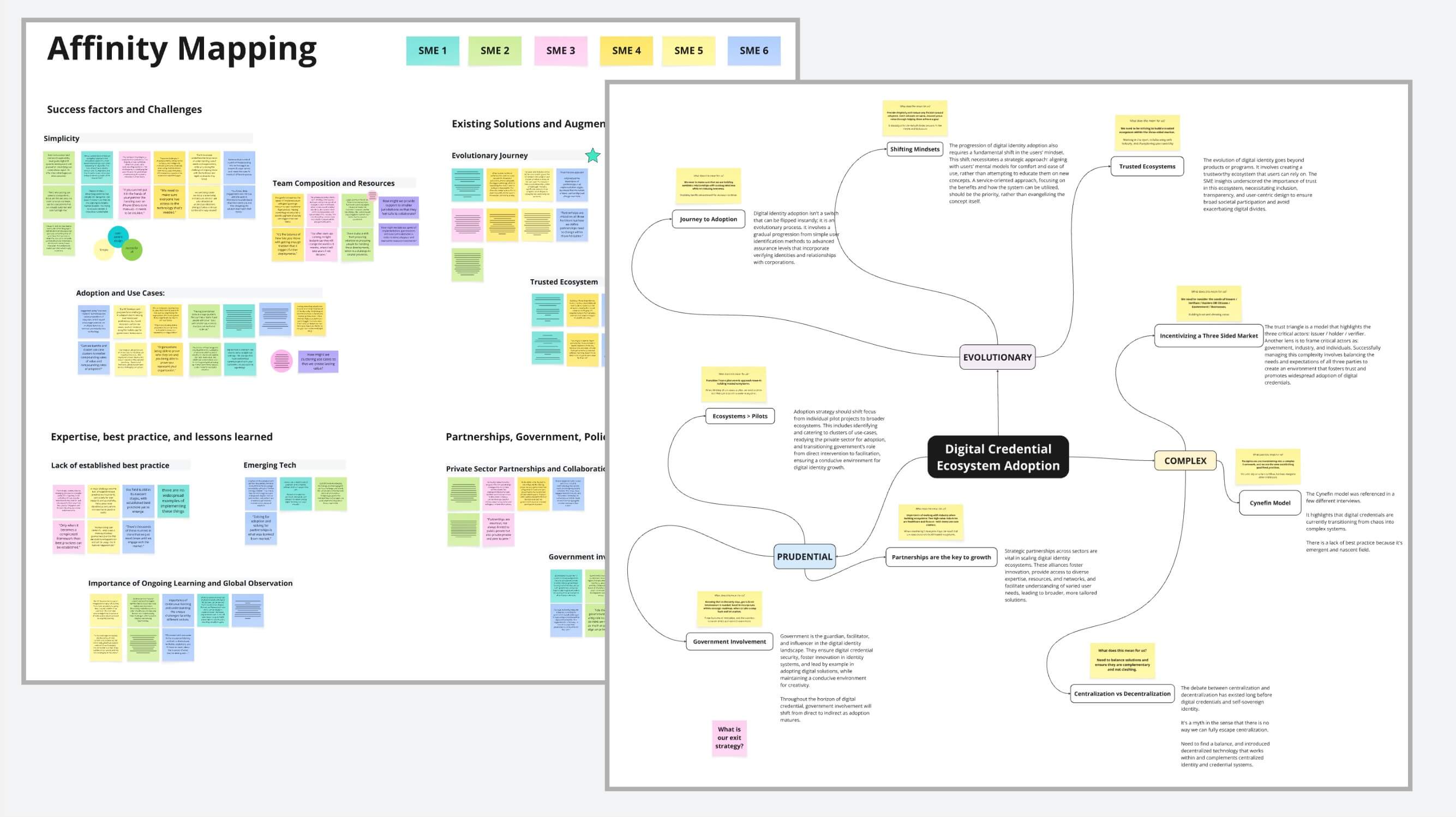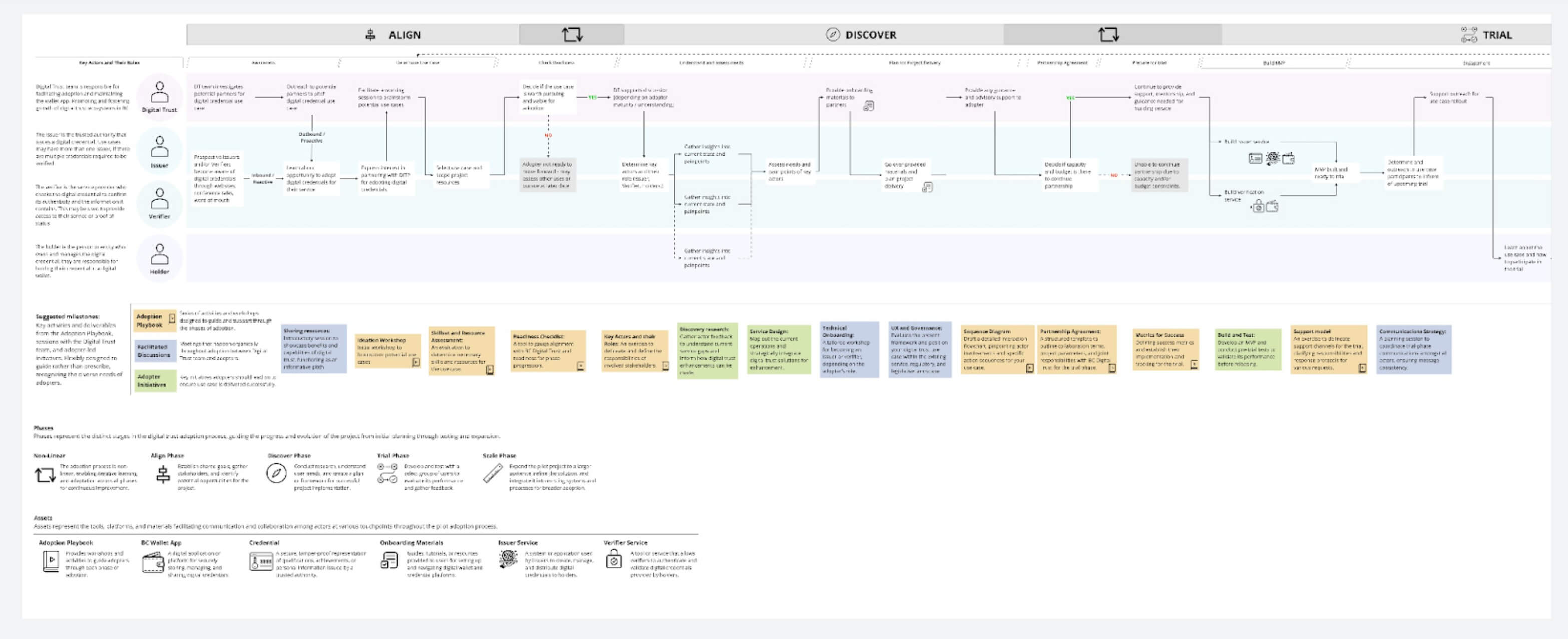Empowering BC's Digital Trust Adoption through an Ecosystem Approach
Led strategic transformation of BC's digital credential adoption from pilot-centric to ecosystem-centric approach through human-centered research and co-creation workshops.
Problem
As British Columbia spearheaded the development of innovative digital credential technology, the challenge was moving beyond pilot projects to achieve sustainable, large-scale adoption. Digital credentials—secure, verifiable digital versions of documents like licenses, certificates, and IDs—had proven technically feasible, but the province needed a strategic approach to scale adoption across government ministries, businesses, and citizens.
The existing pilot-centric approach was limiting growth potential. Individual departments and organizations were running isolated tests, but there was no cohesive strategy for creating the interconnected digital trust ecosystem needed for true transformation. Without understanding the diverse needs of citizens, businesses, and government entities, adoption remained fragmented and unsustainable.
Approach
Civiq Design embarked on a comprehensive service design discovery phase, conducting extensive research with subject matter experts, early adopters, and potential users across government, business, and citizen segments.
Research Methodology:
- Stakeholder interviews with government ministry leaders, business executives, and technology implementers
- User research with citizens and frontline staff to understand adoption barriers and motivations
- Subject matter expert consultations on technical standards and regulatory frameworks
- Co-creation workshops with cross-sector participants to identify shared challenges and opportunities
Strategic Analysis: The research revealed that successful digital credential adoption required moving from isolated pilots to interconnected ecosystems where multiple organizations could leverage shared infrastructure and trust networks. This ecosystem approach would create network effects, making each additional participant more valuable to the whole system.

Outcomes
The project culminated in a research-validated strategic shift from pilot-centric to ecosystem-centric adoption, fundamentally changing how BC approached digital credential scaling.
Key Deliverables:
- Service Blueprint mapping the end-to-end journey for digital credential adoption across different user types and organizational contexts
- Adoption Playbook providing step-by-step guidance for government ministries and organizations to incorporate verifiable credentials into their service offerings
- Ecosystem Strategy outlining how to cluster use cases and organizations to create sustainable, interconnected digital trust networks
- Research Synthesis with actionable insights on user needs, technical requirements, and implementation approaches

Strategic Impact: The ecosystem approach enabled BC to move beyond one-off tests toward truly scalable digital credential adoption. By clustering related use cases (such as professional licensing, educational credentials, and business permits), the strategy created opportunities for shared infrastructure investment and cross-sector collaboration.

The human-centered research validated that success required addressing not just technical challenges, but also user trust, organizational change management, and regulatory alignment. This insight informed BC’s subsequent implementation roadmap and stakeholder engagement approach.
Implementation Foundation: The strategic framework and adoption playbook provided BC’s Digital Trust Program with clear direction for sustainable growth, moving from experimental pilots to production-ready digital trust ecosystems that could serve citizens, businesses, and government at scale.